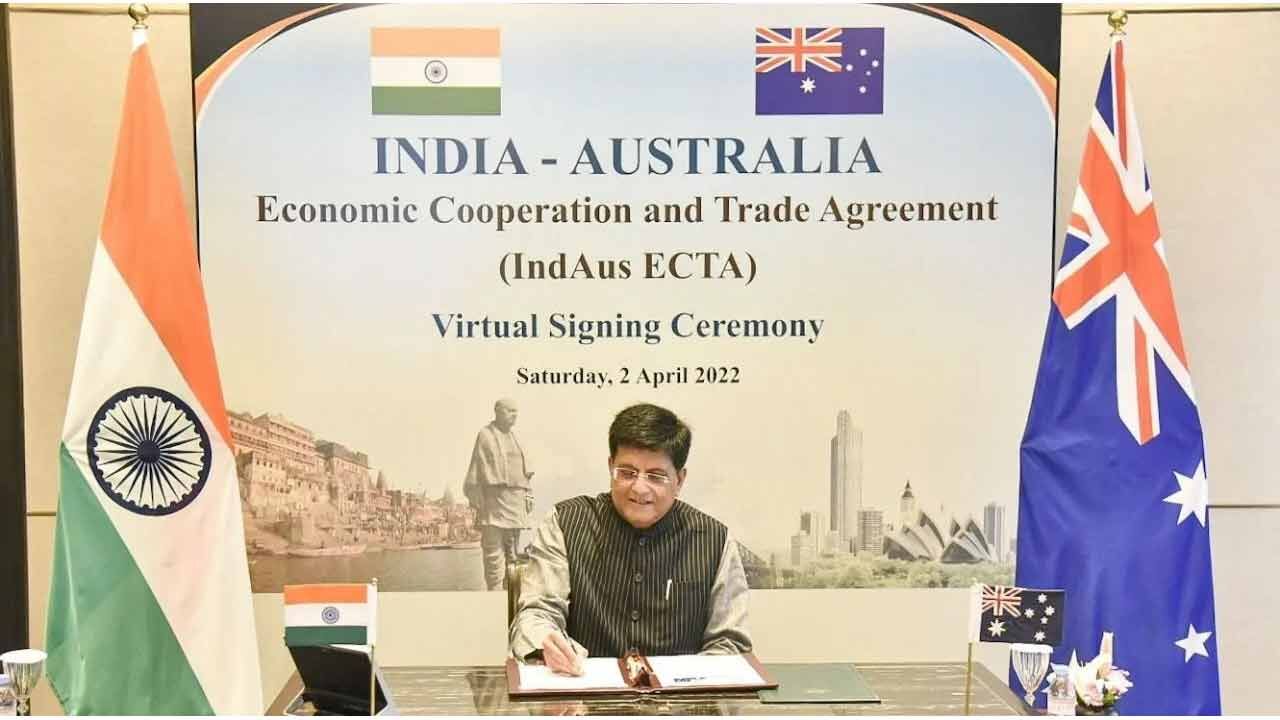A mature partnership

Just a week after the Indian Prime Minister and his Australian counterpart held a virtual summit, the countries signed an Economic Co-operation and Trade Agreement (ECTA) on Saturday. The agreement aims at doubling bilateral trade to USD 50 billion over the next five years and facilitating the movement of people, goods and services across borders. ECTA marks another significant milestone in the booming trade relations between the two countries, and could potentially lay a strong foundational framework for broader Indo-Australian relations over the decades to come. Talks around the finalisation of the Comprehensive Economic Cooperation Agreement (CECA) are already being held, which may be materialised in coming years. The two countries have witnessed an unprecedented thaw over the past decade — with cooperation upgrading from bilateral to strategic levels, and then to the Comprehensive Strategic Partnership. In the virtual summit held last week, both countries even announced an institutionalised annual summit, which is a great leap forward in Indo-Australian bilateral relations. Improving Indo-Australian relations can be attributed to several factors. In the first place, a more concrete conceptualisation of the Indo-Pacific has been made possible through the augmentation of the Quad grouping. Both Australia and India have come out of their cocoons of the Western Pacific and the Indian Ocean respectively, to have a shared engagement in the Indo-Pacific. It goes without saying that the perception of a common challenge in the form of China has been an accelerating force towards bringing the two Quad partners closer. Australian leadership has come to a realisation that it depended rather excessively on China for trade matters, and that India, alternatively, offers not just a promising market but also a means of the resilient supply chain. Long been known for having a convergence of principles and democratic values, both the countries are now clearly able to visualise a convergence of interests as well. If looked at in a wider frame of things, the ECTA may, in fact, be a prelude to the Comprehensive Economic Cooperation Agreement (CECA) that has not been able to fructify for one reason or the other over the past decade. Going by the words of the Trade and Commerce Minister, ECTA will facilitate zero-duty access on over 96 per cent of Indian exports, including several labour-intensive industries. India will reciprocate by allowing preferential access to Australia on 70 per cent of its tariff lines on goods imports. Such an extent of conciliation between the two parties is a clear signal of further opening of economies between them. Notably, Australia is among the bunch of countries with which India is looking forward to finalising free trade agreements. Finalising an FTA is a complex and time-taking process, and rightly so, as it is generally known to conflict with the interests of local producers and manufacturers. ECTA is an indicator that the Indian government is going to leave no stone unturned to finalise and reap the benefits of FTAs with countries like the UK, the UAE, Israel, EU, Canada etc — and that too in the most rapid manner possible. It is reported that India is set to finalise 'early harvest arrangements' with the UK in the coming months. Prior to ECTA, the Indian government signed a similar deal last week with the UAE. Emboldened by the record export growth of over USD 400 billion, the government has expressed its intent quite clearly that export-led growth is the way forward for India. Apart from inching closer to the CECA, the recently concluded ECTA deal is also important from the point of view of diasporic relations. Traditionally, Australia is known to be rather hostile to migrants but, in India's case, the ECTA deal has managed to seal an arrangement regarding visas for 2-4 years for Indian students in Australia. It must be noted here that the Indian diaspora in Australia marks a distinction for being involved in qualified services, largely. Interestingly, neither during the virtual meeting between the two PMs nor in negotiations around ECTA, mention of larger geopolitical issues like the Ukraine crisis or the Chinese belligerence came to the fore. This indicates the level of maturity and independence Indo-Australian relations have acquired over the years. Both sides have also reaffirmed that change in political regime in future will not affect the relations — referring perhaps to the scheduled elections in Australia later this year. A stable bilateral relationship with Australia is of immense value to India.



